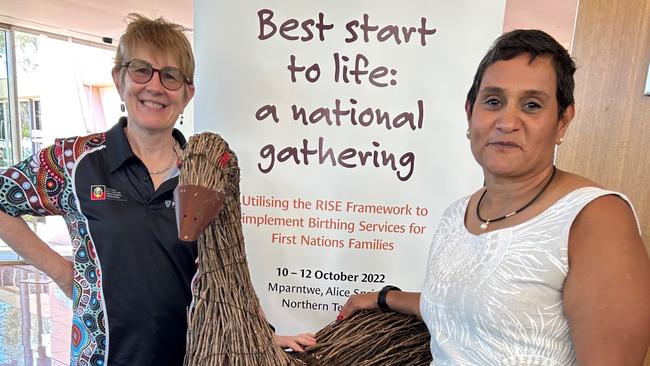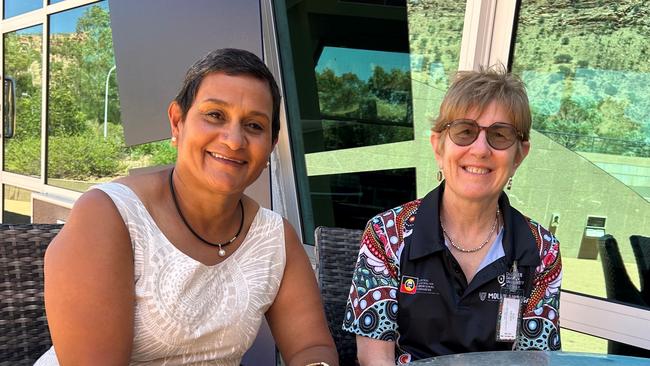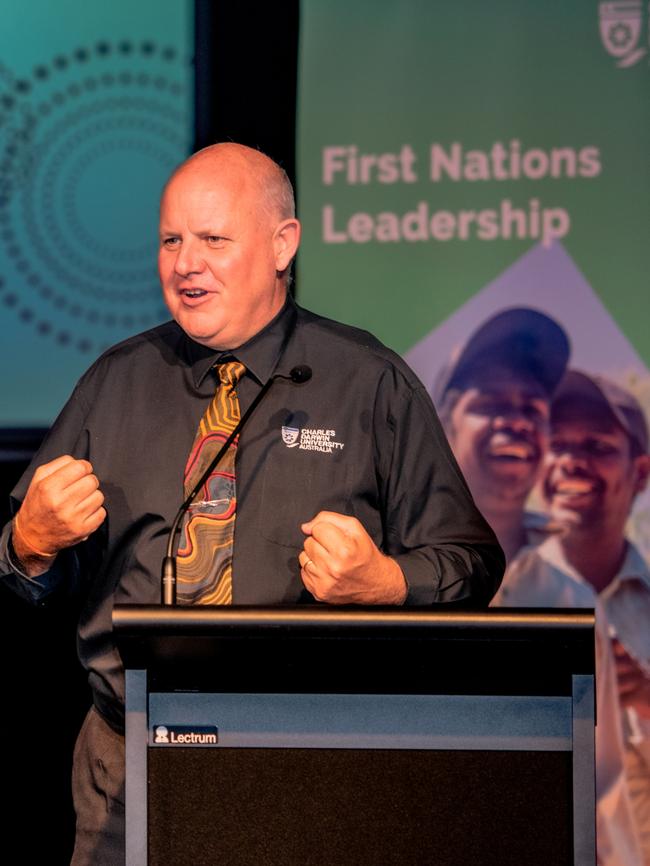University professor Yvette Roe says the Northern Territory maternity system fails Indigenous women
First Nations health professionals say the maternity health system needs to be redesigned to stop children falling into the “chasm” of poor health.

Alice Springs
Don't miss out on the headlines from Alice Springs. Followed categories will be added to My News.
An “unacceptable” health disparity in the first 1000 days of First Nations’ children’s lives has sparked calls to redesign birthing services in the Northern Territory.
The Best Start To Life national gathering conference held in Alice Springs this week brought together community representatives and health professionals to showcase new research in the space.
Molly Wardaguga Research Centre and Central Australian Aboriginal Congress hosted the event in conjunction with Charles Darwin University.
The centre’s co-director and Indigenous health professor Yvette Roe said the evidence showed maternity services in place were unfair for First Nations communities.
“The current system is disjointed and is failing women,” she said.
“We have got in remote communities in the NT with preterm births of First Nations babies five times the national average,”
“It’s not a gap it’s a chasm.”

Community involvement and investment were identified as key pillars to any intervention.
A positive example of a redesigned system was shared at the conference that resulted in less preterm babies born and a higher uptake of breastfeeding.
“We now have to see if we can replicate the findings of this urban centre to remote communities,” Prof Roe said.
“And how we customise that to the unique settings of the Northern Territory.”
“Doing that will change the life trajectory of First Nations women and babies.”

She said giving First Nations children the best start to life was vital in ensuring good health for the rest of their lives.
“It means that baby has got a better chance for avoiding chronic illness, increased chance of engaging in the education system, a whole range of advantages,” she said.
CDU vice-chancellor Scott Bowman said the university was honoured to be part of the solution to a “really important issue”.
“If we want to get great educational outcomes at a uni age, it doesn't start when people come to uni, it starts before they are born,” he said.
“Thirty per cent of our students are First Nations, so we know we need to work with them throughout their life.”





